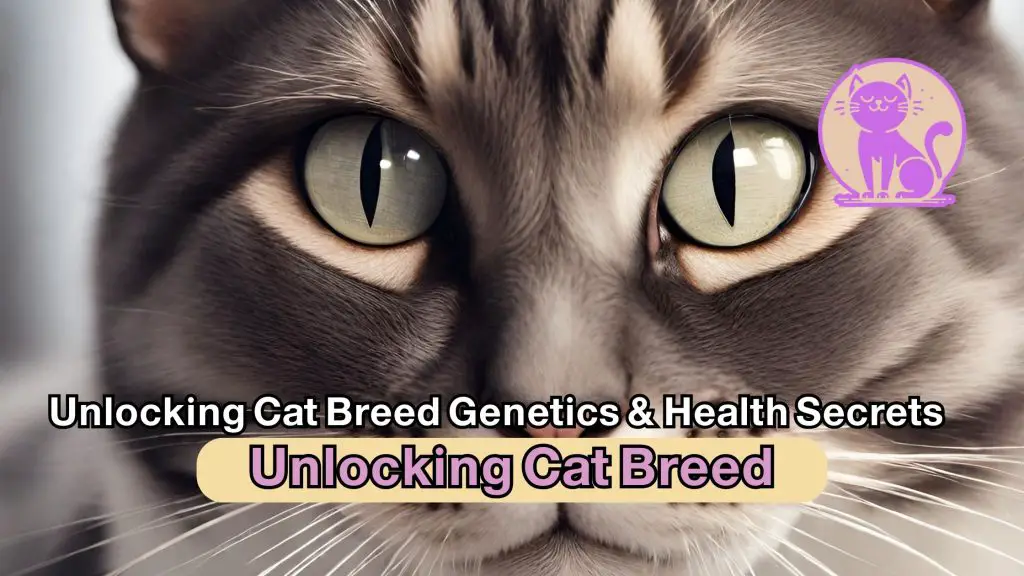Welcome to the fascinating world of cat breed genetics, where the unique characteristics of every feline friend are determined by their genetic makeup. Understanding the role of cat breed genetics is essential for ensuring your furry companion’s health and well-being.
Genetics plays a significant role in shaping each cat’s physical attributes and behavioral traits, as well as their predisposition to certain health conditions. By delving into the intricacies of cat breed genetics, we can unlock the secrets that contribute to your feline’s overall health.
As responsible pet owners, it is crucial to recognize the importance of genetic diversity in cat breeds. Genetic diversity not only enhances the beauty and uniqueness of each breed but also plays a pivotal role in maintaining their overall health and vitality.
In this article, we will explore the impact of genetics on feline health, including how specific genetic traits can predispose certain breeds to inherited diseases. We will also shed light on the unique health challenges faced by different cat breeds due to their genetic predispositions.
Moreover, we will discuss the significance of responsible breeding practices in ensuring genetic health and the importance of maintaining genetic diversity. By embracing ethical breeding standards and making informed breeding decisions, we can safeguard the well-being of future feline generations.
However, cat breed health goes beyond genetics alone. A holistic approach that considers nutrition, environment, and regular veterinary care is crucial for ensuring your beloved cat’s overall well-being. We will explore how these factors complement cat breed genetics in promoting a healthy and fulfilling life for your furry companions.
So, join us on this journey as we unravel the wonders of cat breed genetics and discover the secrets to enhancing your feline’s well-being. Together, we can ensure that our feline friends enjoy happy and healthy lives, powered by the insights we gain from unraveling their genetic mysteries.
Understanding Cat Breed Genetics
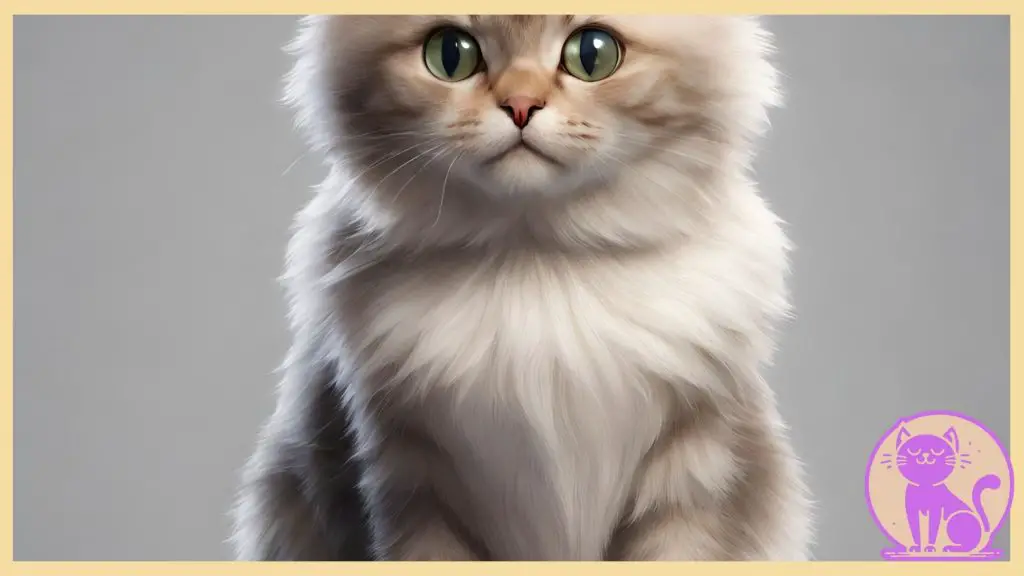
When it comes to cats, their genetic makeup plays a significant role in determining their physical and behavioral characteristics. Understanding cat breed genetics is essential for cat owners, breeders, and enthusiasts alike. In this section, we will explore the fascinating world of feline genetics and the importance of genetic diversity in cat breeds for their overall health.
Feline Genetics and Physical Characteristics
Each cat breed has distinctive physical characteristics that set it apart from others. These traits, such as coat color, pattern, eye shape, and body structure, are a result of their cat breed genetics. For example, the Siamese breed is known for its striking blue almond-shaped eyes and short coat, which are genetically determined.
Cat breed genetics are responsible for variations in size, weight, and build. Breeds like the Maine Coon have a robust and muscular physique, reflecting their genetic predisposition, while the slender and elegant Siamese breed has a more delicate frame.
Feline Genetics and Behavioral Characteristics
Besides physical traits, cat breed genetics also influence a cat’s behavior and temperament. Some breeds, like the Ragdoll, are known for their docile and affectionate nature, which is a result of specific genetic traits. On the other hand, breeds like the Bengal may have a more active and playful disposition, reflecting their genetic predisposition.
Understanding the behavioral tendencies associated with different breeds helps potential cat owners choose a cat that aligns with their lifestyle and preferences. Whether you prefer an active and energetic cat or a calm and easygoing companion, feline genetics can provide valuable insights into what to expect from different breeds.
The Importance of Genetic Diversity in Cat Breeds
Genetic diversity in cat breeds is of utmost importance for the health and well-being of feline populations. When a breed has a limited gene pool due to uncontrolled breeding practices or excessive inbreeding, it can result in various health issues and genetic disorders.
A diverse genetic pool ensures a healthier and more robust breed, minimizing the risk of inherited diseases and improving overall vitality. Responsible cat breeders understand the significance of genetic diversity and actively work to maintain it by carefully selecting breeding pairs with compatible and diverse genetic backgrounds.
| Cat Breed | Distinct Physical Characteristics | Distinct Behavioral Characteristics |
|---|---|---|
| Maine Coon | Large size, muscular build | Friendly, sociable |
| Siamese | Blue almond-shaped eyes, short coat | Affectionate, vocal |
| Bengal | Spotted or marbled coat pattern, muscular build | Active, playful |
Table: Examples of cat breeds and their distinctive physical and behavioral characteristics influenced by their cat breed genetics.
The Role of Genetics in Inherited Diseases
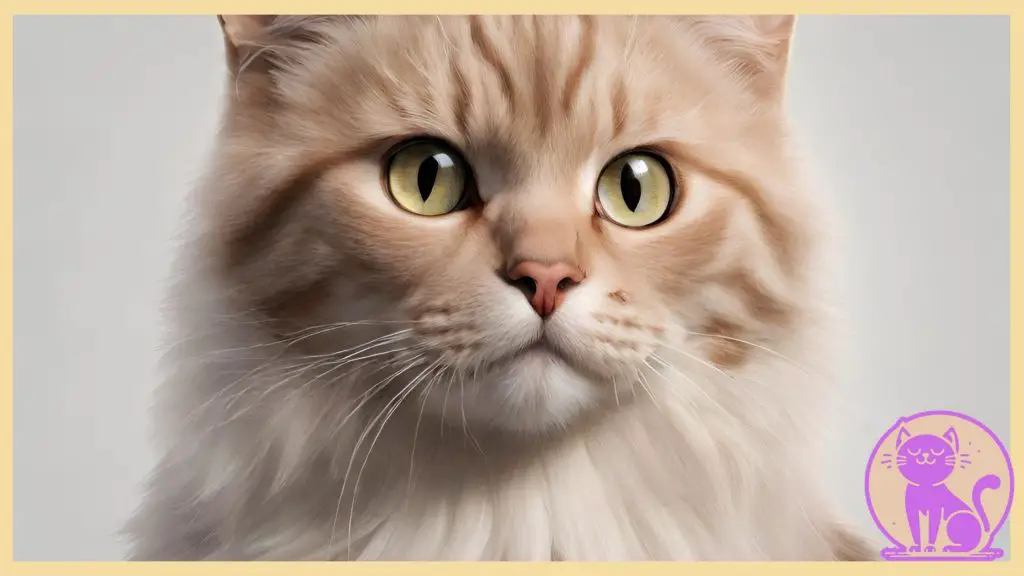
When it comes to the health of our beloved feline companions, understanding the role of genetics is crucial. Genetic health in cats plays a significant part in determining their overall well-being and, unfortunately, can also contribute to the development of inherited diseases.
Certain cat breeds may have specific genetic traits that predispose them to certain health issues. This is important for cat owners and breeders to be aware of, as it allows for proactive measures to minimize the occurrence of these diseases.
By identifying the genetic factors that contribute to inherited diseases in cats, breeders can make informed decisions to reduce the risk of passing on these conditions to future generations.
A responsible approach to breeding involves genetic testing to identify potential genetic health issues in cats before they are used for breeding. This helps ensure that only cats with a lower risk of inherited diseases are selected for mating, thus reducing the likelihood of passing on these conditions.
Additionally, maintaining genetic diversity in cat breeds is crucial. Inbreeding, which reduces genetic diversity, can increase the risk of inherited diseases. Breeding programs that prioritize genetic diversity help mitigate this risk and promote healthier cat populations.
It’s important to remember that genetic health in cats is a complex matter influenced by various factors. While responsible breeding practices can significantly reduce the occurrence of inherited diseases, regular veterinary care and a nurturing environment also play essential roles in ensuring the overall well-being of our feline friends.
Prevalent Inherited Diseases in Cat Breeds
Certain cat breeds are more susceptible to particular inherited diseases due to their genetic makeup. Here are a few examples of common inherited diseases in specific cat breeds:
| Cat Breed | Inherited Disease |
|---|---|
| Maine Coons | Hypertrophic Cardiomyopathy (HCM) |
| Persians | Polycystic Kidney Disease (PKD) |
| Sphynx | Hypertrophic Cardiomyopathy (HCM) |
| Bengals | Progressive Retinal Atrophy (PRA) |
Understanding these breed-specific risks allows cat owners to be more vigilant in monitoring for signs and symptoms, seeking appropriate veterinary care, and considering genetic testing and responsible breeding practices.
Health Challenges in Specific Cat Breeds
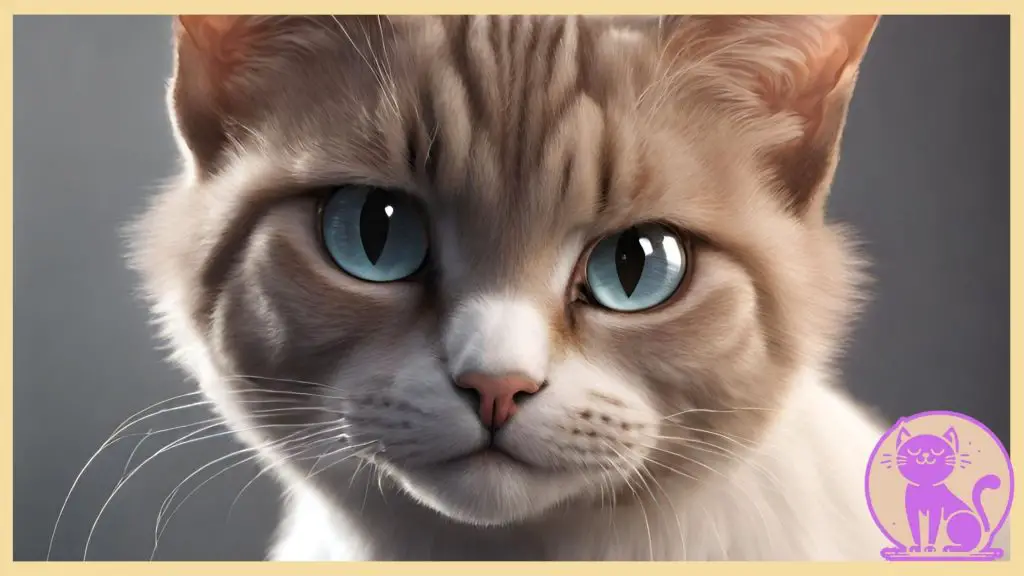
When it comes to cat breeds, each one comes with its own unique set of characteristics and health challenges. Understanding these challenges is crucial for cat owners and breeders to ensure the well-being of their furry friends. Below, we discuss some common health issues associated with popular cat breeds and provide insights on how to manage and prevent them.
Maine Coon
The Maine Coon breed is known for its large size and friendly nature. However, they are prone to certain health issues, including:
- Hypertrophic cardiomyopathy (HCM): A heart condition that affects the heart muscles.
- Polydactyly: A genetic condition that causes extra toes on the cat’s paws.
- Spinal muscular atrophy (SMA): A degenerative disease that affects the muscles.
Persian
Persian cats are beautiful with their long, luxurious coats, but this breed can face several health challenges such as:
- Ocular issues: Persians are prone to eye conditions such as entropion (inward rolling of the eyelids) and progressive retinal atrophy (PRA).
- Breathing difficulties: Due to their flat faces, Persians may experience respiratory problems like brachycephalic airway syndrome.
Siamese
Siamese kittens are known for their striking blue eyes and vocal nature. Although generally healthy, they may be susceptible to:
- Asthma: Siamese cats are more likely to develop feline asthma, a chronic respiratory condition.
- Hyperthyroidism: This condition occurs when the thyroid gland produces an excessive amount of thyroid hormone.
- Dental issues: Siamese cats are prone to dental problems, including periodontal disease and tooth decay.
| Breed | Common Health Issues |
|---|---|
| Maine Coon | Hypertrophic cardiomyopathy (HCM), Polydactyly, Spinal muscular atrophy (SMA) |
| Persian | Polycystic kidney disease (PKD), Ocular issues, Breathing difficulties |
| Siamese | Asthma, Hyperthyroidism, Dental issues |
It’s essential for cat owners and breeders to be aware of these specific health challenges and take proactive measures to prevent and manage them. Regular veterinary check-ups, proper nutrition, and a safe environment are crucial for ensuring the well-being of cat breeds.
Ensuring Genetic Health in Cat Breeding
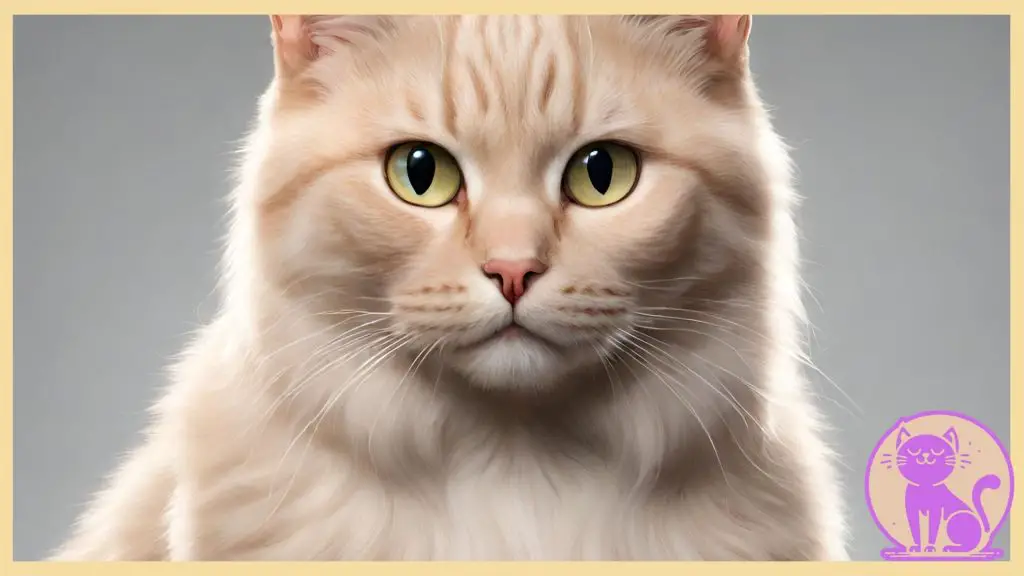
When it comes to breeding cats, maintaining genetic health is of utmost importance. Responsible cat breeding practices play a vital role in ensuring the well-being of future feline generations. This involves considering factors such as genetic diversity, inherited diseases, and ethical breeding standards.
Genetic diversity in cat breeds is crucial for the overall health and vitality of the breed. When a breed’s gene pool becomes too limited due to excessive inbreeding, it can lead to various health issues. By encouraging outcrossing with unrelated individuals, breeders can introduce new genetic material, reducing the risk of inherited diseases and promoting a stronger gene pool.
However, inherited diseases in cats are still a concern, regardless of the breed’s genetic diversity. Certain genetic traits can predispose specific cat breeds to particular health problems. It is crucial for breeders to conduct genetic testing on their breeding cats to identify carriers of genetic diseases and make informed decisions regarding mating pairs.
Adhering to ethical cat breeding practices is essential for ensuring genetic health. Breeders should prioritize the well-being of the cats and act in accordance with established breeding standards. This includes providing proper healthcare, nutrition, socialization, and environmental enrichment for the breeding cats.
Regular genetic testing of breeding cats plays a vital role in identifying carriers of inherited diseases. This allows breeders to make informed decisions when selecting mating pairs, minimizing the risk of passing on genetic health issues to future generations.
Breeding for Genetic Diversity – The Key to Healthy Cats
Achieving and maintaining genetic diversity is a critical component of promoting cat breed health. By introducing new genetic material through careful outcrossing, breeders can help combat the negative effects of inbreeding and reduce the incidence of inherited diseases.
Below is a table showcasing the advantages of breeding for genetic diversity in cat breeds:
| Advantages | Description |
|---|---|
| Reduced Inherited Diseases | Introducing new genetic material decreases the risk of inherited diseases that can be prevalent in specific cat breeds. |
| Improved Overall Health | A diverse gene pool leads to stronger immune systems, better vitality, and increased resistance to various health issues. |
| Enhanced Genetic Adaptability | Genetic diversity allows a breed to adapt to changing environmental conditions, ensuring their long-term survival and well-being. |
Breeders who prioritize genetic diversity in their breeding programs contribute to the long-term health and preservation of cat breeds. By carefully selecting mating pairs and considering genetic health, we can make a positive impact on the well-being of future feline generations.
Promoting Cat Breed Health: A Holistic Approach
While cat breed genetics are undeniably important for understanding and maintaining the health of your feline companions, a holistic approach that considers various factors is crucial for their overall well-being.
One key aspect to consider is nutrition. Providing your cat with a balanced and appropriate diet is essential for their health. Different cat breeds may have specific dietary requirements, and it’s important to consult with a veterinarian or feline nutritionist to ensure your cat is receiving the necessary nutrients they need.
The environment in which your cat lives also plays a significant role in their health. Creating a safe and stimulating environment with plenty of mental and physical enrichment can promote a healthy lifestyle. Providing scratching posts, toys, and perches can help satisfy their innate instincts and reduce stress.
Regular veterinary care is another crucial element of a holistic approach to cat breed health. Scheduling routine check-ups allows for early detection of any potential health concerns and preventive measures against diseases. Your veterinarian can provide guidance on vaccination schedules, parasite prevention, and general health maintenance.
While genetics form the foundation of a cat’s health, a holistic approach that considers nutrition, environment, and regular veterinary care can help promote a thriving and happy cat breed. By addressing these factors in conjunction with cat breed genetics, you can ensure the well-being of your feline companions.
Conclusion
Throughout this article, we have explored the fascinating world of cat breed genetics and its profound impact on the health of our feline companions. Understanding the role genetics play in our cats’ well-being is crucial for providing them with the best possible care.
We have seen how cat breed genetics influence not only the physical characteristics of different breeds, but also their predisposition to certain health issues. Genetic diversity is key in maintaining the overall health of cat breeds, and responsible breeding practices play a vital role in achieving this.
By considering cat breed genetics and implementing ethical breeding standards, we can help minimize the occurrence of inherited diseases and promote the long-term well-being of future feline generations.
A holistic approach to cat breed health must also encompass nutrition, environment, and regular veterinary care. By incorporating all these elements, we can ensure that our beloved cats thrive and lead healthy lives.

